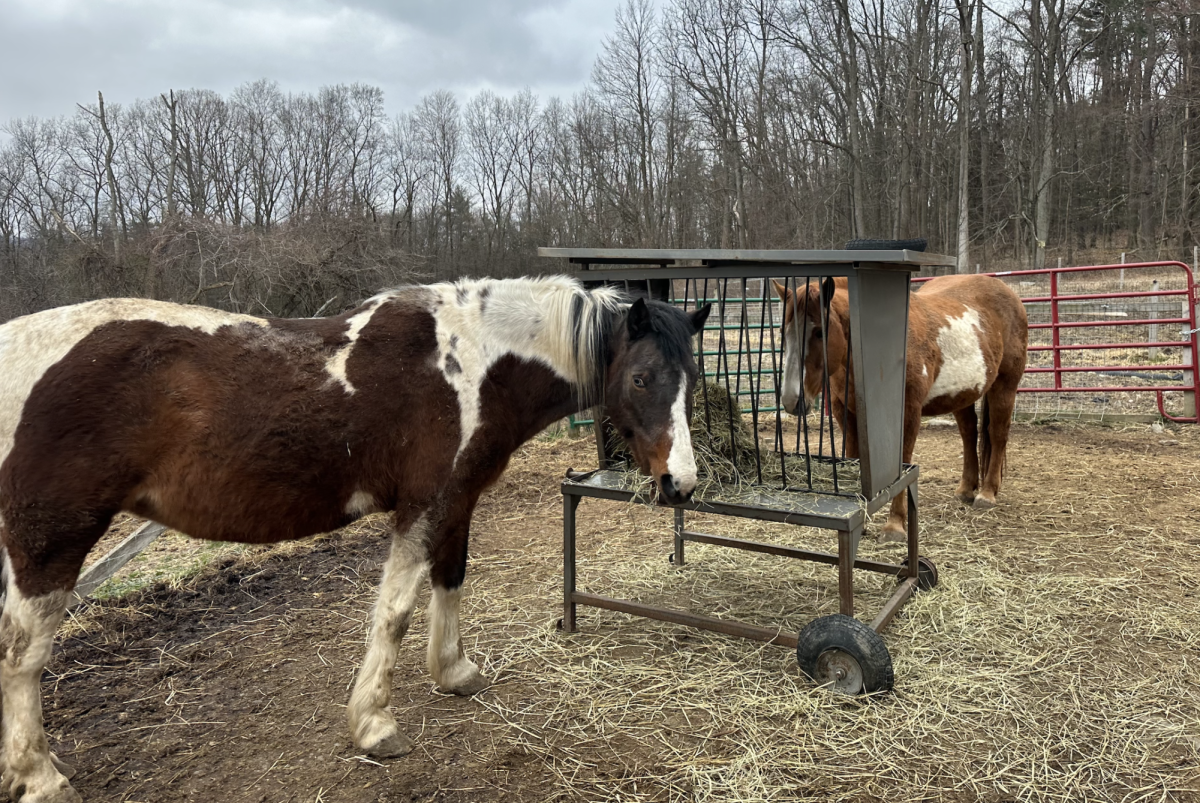
How does local wildlife management work?
When a nuisance species, or a non-native species that causes ecological harm, is located, there are several options, including removal, relocation or killing. All solutions must be approved by the New York State Department of Environmental Conservation.
Wildlife management company Wildlife Resolutions in Lansing specializes in these solutions. Matt Sacco, a wildlife technician with Wildlife Resolutions, said relocating an animal can have unseen problems.
“When you translocate [an animal], that gives us as humans the immediate gratification of ‘Oh, look, we’ve let it go. It’s going to go be happy in this new place,’” Sacco said. “The reality is most of those animals that get released like that have a pretty low chance of survival. You’re taking them to a place where they don’t know where anything is.”
After entrapment, wildlife management experts judge the animal’s condition. If an animal is injured but has a chance of rehabilitation, it will be taken to a local veterinary hospital. Sara Childs-Sanford, section chief of wildlife medicine at the Janet L. Swanson Wildlife Hospital, said working with local rehabilitators is crucial.
“We work with licensed wildlife rehabilitators from around New York state,” Childs-Sanford said. “When we have a patient that has had its issue fixed, or mostly fixed, we send them to a wildlife rehabilitator, and they do the rest of the care that animal needs [to] get it ready for release back to the wild.”
After the veterinarian, a wildlife rehabilitator will prepare the animal for release. Cheryl Rigas, a DEC-certified wildlife rehabilitator who operates the Turtle Crossing Wildlife Rehabilitation Farm in Ithaca, said rehabilitation can be challenging yet important work.
“This is not easy, what we’re doing,” Rigas said. “They’re wild animals. They don’t get cute and cuddly… There’s a wild instinct that comes on. They don’t want to be with you anymore and it makes releasing them all the easier because [they can] go free, go forth and thrive.”
State regulations
According to DEC guidelines, removing or relocating an animal is illegal unless the handler is a licensed professional with permission from the DEC. However, not every animal requires a permit for removal. The rules depend on the animal in question.
For beavers, the DEC can grant permits to landowners for deadly removal. Without a permit, the beavers cannot legally be removed, relocated, or killed.
Other options for animals
If an animal cannot be released into the wild, then its options become slimmer. However, organizations like the Cayuga Nature Center care for such animals. Instead of the wild, these creatures live permanently at the nature center.

Shyia Magan, the director of live animals at the Paleontological Research Institution, a part of the Cayuga Nature Center, said these captive animals still live meaningful lives, especially as educational tools.
“Sometimes something is too serious and they can’t be released back into the wild,” Magan said. “And so that’s why places like the nature center exist, because it helps give people these educational experiences.”
So what happened with the beaver?
Although the Office of Facilities has received the permit to kill, a representative from the office, as of Oct. 5, said the beaver has not been trapped or killed yet. Currently, its whereabouts are unknown. Sacco said these situations can be hard to tackle.
“Beavers are creating an issue,” Sacco said. “One party really wants them gone and someone else wants to name them all and hand feed them every day. That’s a hard position to be in. Someone’s going to not be happy no matter what you do.”


















